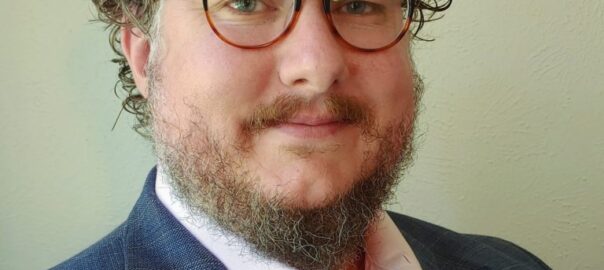Bio
Matthew J. Brown works in the fields of philosophy of science, science and technology studies, history of philosophy, and cognitive science. He is Professor of Philosophy and the Jo Ann & Donald N. Boydston Chair of American Philosophy at Southern Illinois University (Carbondale) and the Director of the Center for Dewey Studies, which focuses both on the study of John Dewey’s life and works as well as carrying on the living legacy of John Dewey.
The main focus of Brown’s current research is on the interactions of science and values, broadly construed. He has developed a general account of scientific practice and its interaction with judgments of value in his book Science and Moral Imagination: A New Ideal for Values in Science. He is currently working to trace the consequences of such accounts for the role of science in democratic politics and policymaking.
Dr. Brown also works on the history of philosophy of science, especially on figures who focused on the relationship between science, values, and society. He has particularly focused on John Dewey and Paul Feyerabend.
Brown engages in collaborative, multi-disciplinary research projects on engineering ethics and engineering education, bringing his expertise in science and values as well as his expertise in sociocultural theories and methods in cognitive science to the project. This research has led to two NSF-grant funded projects, “Engineering Ethics as an Expert Guided and Socially Situated Activity” (2013-2017) and “The Formation of Engineers in the Research Lab: A Cognitive Ethnographic Study” (2019-2023).
Through his previous position as Director of the Center for Values in Medicine, Science, and Technology, Dr. Brown organized conferences and workshops, hosted an annual series of lectures aimed at students and the local community, and hosted video lectures and other resources on the Center website.
Brown received a B.S. from the School of Physics at the Georgia Institute of Technology, where he studied with Jon J. Johnston, David Finkelstein, Bryan Norton, and Nancy Nersessian. He received his M.A. and Ph.D. in Philosophy from the University of California, San Diego, where his dissertation was supervised by Nancy Cartwright and Paul Churchland (co-chairs), Gerald Doppelt, Donald Rutherford, Roddey Reid, and Michael Cole.
Selected Publications
- (with Jacob Stegenga) “The Validity of the Argument from Inductive Risk (Discussion Note),” Canadian Journal of Philosophy, 2023.
- (with Magdalena Grohman and Eun Ah Lee) “Ethical Reflection as a Part of Creative Problem-Solving” in Jonathan A. Plucker (ed.), Creativity & Innovation: Theory, Research, and Practice 2nd edition, 2022.
- Science and Moral Imagination: A New Ideal for Values in Science (2020) University of Pittsburgh Press.
- (with Eun Ah Lee). “Connecting Inquiry and Values in Science Education: An Approach based on John Dewey’s Philosophy.” Science & Education 27(1-2):63–79, 2018.
- “Values in Science beyond Undetermination and Inductive Risk,” (2013) Philosophy of Science 80(5): 829-839.
- “The Democratic Control of the Scientific Control of Politics” (2013) in Dennis Dieks and Vassilios Karakostas, editors, EPSA11 Perspectives and Foundational Problems in Philosophy of Science. (Selected proceedings from the European Philosophy of Science Association 2011.), pp. 479-92.
- “The Source and Status of Values for Socially Responsible Science” Philosophical Studies, Volume 163, Issue 1, March 2013, pp 67-76.
- “Science, Values, and Democracy in the Global Climate Change Debate,” (2013) in Philosophical Pragmatism and International Relations: Essays for a Bold New World, ed. by Shane J. Ralston.
- “John Dewey’s Logic of Science” HOPOS: The Journal of the International Society for the History of Philosophy of Science 2(2), Fall 2012, pp. 258-306.
- “Science as Socially Distributed Cognition: Bridging Philosophy and Sociology of Science” (2011) Foundations of the Formal Sciences VII: Bringing together Philosophy and Sociology of Science, v. 32 of Studies in Logic, pp. 17-30.
